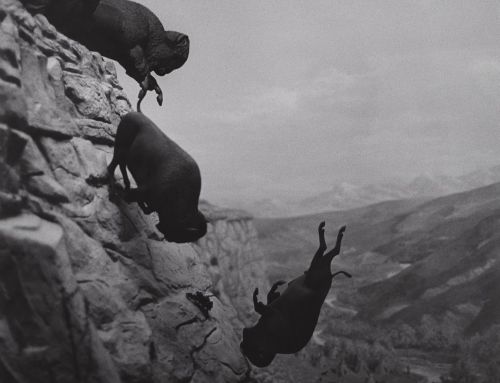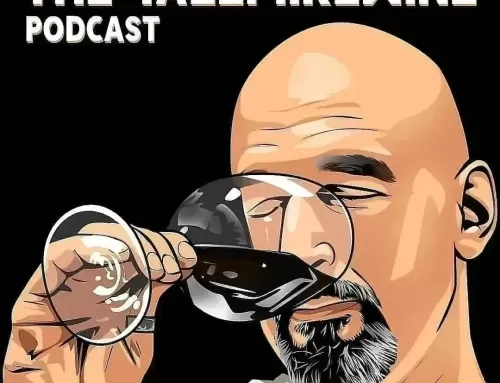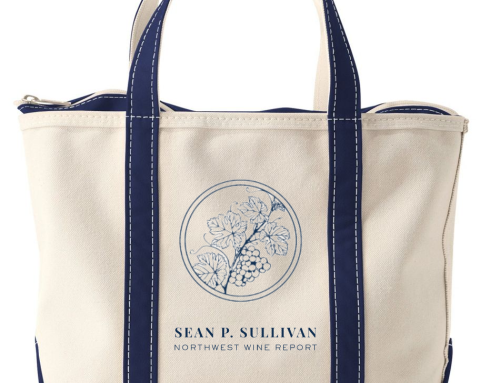Yesterday I wrote about the Washington State Liquor Control Board (LCB) ending the ‘corkage free zone’ in Yakima. This popular program allowed consumers to buy wine from local wineries and drink the wine at local restaurants – provided the wine was bought the same day – without paying a corkage fee. Below is additional information from both the LCB and Washington Wine Institute (WWI) regarding the matter.
While initial indications were that Yakima’s ‘corkage free zone’ might have come to the LCB’s attention due to interest by other parties in creating a similar program elsewhere, Communications Director Brian Smith, says that the LCB was following up on the issue due to a complaint from within the industry.
In terms of the specific issue with the ‘corkage free zone,’ Smith states:
“The legal issue with the agreement between local wineries and local restaurants is that they were singling out specific wineries in the state of Washington rather than allowing any Washington winery.
In Yakima, the wineries are giving customers a “corkage fee pass” to take to any restaurant the winery recommends and the customer was not charged a corkage fee. This gives those restaurants an advantage over any restaurant that hasn’t entered into the agreement. It also gives the participating wineries an advantage over any winery that hasn’t entered into the agreement.
The state alcohol laws that govern business relationships between manufacturers (wineries), distributors and retailers (restaurants) state that manufacturers can’t provide items beyond “nominal value” (money’s worth). Manufacturers also can’t provide any items to customers free of charge. In this case, waiving a restaurant corkage fee is providing something of significant value to a customer.
If a restaurant is not part of the agreement, they don’t get the recommendation from the winery. And, the winery that isn’t part of the agreement will have a corkage fee charged on their wine at the restaurant.”
Jean Leonard, Director of Government Affairs, for the Washington Wine Institute disagrees with the LCB’s assessment, saying:
“WWI disagrees with the LCB’s interpretation that the Yakima program is a violation of “tied house” laws and we have challenged the analysis included in their enforcement letter. We are hoping to resolve this issue with the Liquor Board by clarifying that certain promotional activities are legal. We think that the restaurants’ idea of voluntarily waiving a corkage fee for customers bringing in a bottle of wine is a great opportunity for restaurants and wineries.”
The LCB’s Smith says, “As always, we’re willing to work with the Wine Institute to find a solution. The most likely solution is through the Legislature granting an exception to the law.”
Stay tuned.







Sean–I posted the WWI's analysis of this issue on your FB page. It was too long to be posted here.
Many thanks Mark!
This is news to me, Sean thanks for covering it. i'll read more, but my initial reaction is that this is another government action (by Olympia no less) to control and restrict a program that was mutually beneficail to the residents, businesses (both restauratns and wineries) of the Great City of Yakima. More reason to cleave the state at Snoqualmie Pass. Come on over before we build the wall.
Cheers!
I'm a retired 31 year employee of the WSLCB's retail division and a 40 year wine lover, consumer, and wine educator. As far as I can figure, there's nothing that prevents anyone from being involved in programs such as this if they want to be. If there's an unfair advantage for some restaurants, then let the other ones get involved. I've never been a fan of corkage fees anyway…and neither has wine aficianado Robert Parker (if you care). Many years ago while working with the LCB, I had a Parker Day-At-A-Glance calendar on my desk. The following was his entry for Sunday April 18th (I don't recall the year, but probably at least 10 years ago). I pinned it up shortly thereafter in my wine cellar. "Given the vast sums of American discretionary income that is being spent eating at restaurants (my words: Boy! has that ever changed!) a strong argument could be made that the cornerstone to increased wine consumption and awareness would be the consumption of wine at restaurants. However, most restaurants treat wine as a luxury item, marking it up an exorbitant 200 to 500 percent, thereby effectively discouraging the consumption of wine. The practice of offering wines at huge markups also serves to reinforce the mistaken notion that wine is only for the elite and the rich. The wine industry does little about this practice, being content merely to see its wines placed on a restaurant's list. But the consumer should revolt and avoid restaurants that charge exorbitant wine prices, so matter how sublime the cuisine." So…let's have an insurrection! And cheers to Jar Arcand!
Sean-
Have you found a real job yet?
This isn't totally new.
CA (Sonoma/Santa Rosa area) has been doing something similar for years. Buy a bottle of wine from their list and there is no corkage on the local wine you bring in and it doesn't have to have been purchased that day.
Perhaps (hopefully) this whole affair will get the eating establishments to re-evaluate their whole corkage fee programs.
Chris, perhaps we can wrap this into my annexation plan for the 'occupied area' of the Walla Walla Valley AVA?
Anon 3:14pm, thanks for the perspective and great Parker quote.
Anon 3:52, thanks for asking. Is the Anonymous Commenters Guild hiring?
Anon 4:43, thanks for passing along the information from Sonoma/Santa Rosa. Will look into this. I would love to see corkage fees get some increased attention/pressure. It would be quite an interesting promotional idea to have Washington wine purchased the same day from a Washington winery offered corkage free at restaurants state-wide. I would expect, however, that there might be a good deal of resistance to this. Hopefully something will be able to be worked out to get the program back up and running.
Sounds like there's an easy workaround. Have restaurants offer free corkage on any bottle of wine purchased at any winery that day. The great majority would be from local wineries, and participation would be open to any restaurant who cared to do so.
As far as advertising the practice at the wineries goes, that would probably have to change more than anything else. I don't know, but doubt that there is any prohibition for employees to recommend restaurants (or anything else, for that matter) by word-of-mouth to their customers. Having them know what local restaurants engage in this practice and let customers know couldn't possibly be illegal, could it?
I think one of the most important lessons to learn here is that the best way to deal with the WSLCB is to operate under their radar. Towards that goal, not advertising programs such as this in print is probably wise; they need to be operated more on a level of 'well, this is just our local custom, and such and such restaurants do so, and you kinda have to be in the know to know about it.' If Wine World has taught us anything, it's that advertising your wine program is a great way to attract government attention.
Sean,
Sad to hear this I love the program, I like the under-handed work around that Justin proposes. Also, don't go work at the Anonymous Commenters Guild. I had a cousin who worked there, he said all his co-workers were assholes.
Why should a program as neat and obviously good as this one need to be under the radar? I first visited Santiago's a Mexican place on Yakima avenue due to a large banner out front saying Corkage Free Zone. I love that banner and hope to find one. It will become my side panel for my truck. We may be yokels but not allowing or advertising a good program because someone complained is completely stupid.
If you can't tell my blood is boiling on this issue. I'll read some more and post my first blog of 2011 in a day or 2. I'm fairly certain I'll get myself in trouble with a political rant.
This comment has been removed by a blog administrator.
This comment has been removed by a blog administrator.
Hi John,
I must say that it didn't escape my attention that these specific rules would have been abolished if 1100 passed – and also that the Washington Wine Institute did not support 1100. An excellent example of the negative impacts of the tied house laws. I should also say that I agree with you, although also not a lawyer, that the LCB's interpretation of the law seems correct. A negative consequence perhaps of the laws but an interaction they were intended to prevent.
Thanks as always for your thoughts.
Sean
John's remarks above about Jean Leonard are a disgrace to the Washington wine industry. They are untrue, unwarranted, and highly misleading. Unfortunately John is following in the footsteps of another FWWS Board member who recently blogged something similar. In truth Jean, working on behalf of the Washington Wine Institute has accomplished incredible things for this industry in the last ten years. Her ability to continue to make such accomplishments will be undermined by naive commentary like I just read above.
Marty Clubb
Owner/L'Ecole No 41
President/Washington Wine Institute
I am very disheartened to see such unwarranted attacks such as those shown by John Morgan. I have had a chance to see Jean Leonard fighting for all of us as winery members. Her successes are such that her credibility with the legislature is unquestioned. If the folks at FWWS would stop spreading this maliciousness and untruths, they would realize that this industry is healthy, and that the Institute is working tirelessly on all industry members' behalf. Shame on the Board of FWWS. Show some maturity.
Part 1
Today, I learned a new word on Twitter (thank you David Voth)…Ilunga (Tshiluba, Congo): A person who is ready to forgive any abuse for the first time, to tolerate it a second time, but never a third time.
I, too, am dismayed and disappointed by the constant negativity from an organization that purports to be the bastion of this state’s family owned wineries (Family Wineries of Washington State). It is obvious to me that 2 or 3 of its board members have launched a particularly vitriolic diatribe against the Washington Wine Institute, its member wineries and Jean Leonard, its Director of Governmental Operations in particular.
Continued in Part 2
Part 2
Rome wasn’t built in a day and no single day will advance an accord that we all seek. Positive change can only be effected by advancing an honest dialog among those concerned; the legislature, the regulatory agencies and our industry. To that end, Jean Leonard has been a stalwart workhorse with our best interests truly in mind. Furthermore, and more importantly, she has earned the respect and admiration of everyone concerned with our issues (except, apparently, the FWWS).
What is this organization and who stands behind it advancing divisiveness toward our industry? I do not! It seems that anyone and everyone who attended its organizational meeting became founding members. Yet, when asked directly, my “member” friends disavow any ties to its charter, its goals and especially its methodology. Why are your names still on the membership list?
Oh, and for Jean and the WWI board, it’s time to be an Ilunga!
Lloyd Anderson, Co-owner & Winemaker, Walter Dacon Wines
All, I removed the comment (two parts) from John Morgan at Lost River Winery at his request.